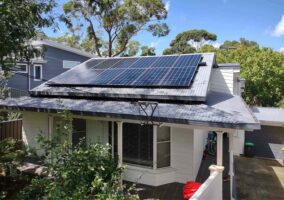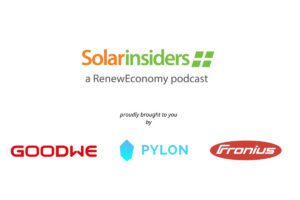Two marine technology companies with their origins in Australia have signed an agreement to collaborate and seek ways they can work together to reduced the cost of wave energy and tidal energy.
Perth-based Carnegie Wave Energy Limited and Atlantis Resources Corporation, a tidal wave energy developer that was founded in Australia and recently listed on London’s Alternative stock exchange, will collaborate in a range of areas including technology and project development.
The two companies say the aim of the agreement is to lower the cost of generation of both wave and tidal generation. Work has already begun on the first collaboration activity package.
“Collaboration between developers in the marine energy space is both essential for progress to be continued to be made and inevitable as marine energy technologies and markets mature,” Carnegie CEO Michael Ottaviano said in a statement. “We are delighted to be working alongside Atlantis who a leader in the tidal energy sector“.
Atlantis CEO Tim Cornelius, said there are numerous synergies, both technical and commercial, that exist between wave and tidal power development.
Carnegie is currently constructing the world’s first multi-module wave energy array near Perth, in a development that will also provide desalinated water to the Garden Island naval base.
Atlantis, whose biggest shareholder is investment banking giant Morgan Stanley, is working on the first demonstration-scale stages of the MeyGen project in Scotland, which could total nearly 400MW when finished.
The two companies say that both wave power and tidal are highly predictable forms of clean, renewable energy, and are complementary technologies because wave power harnesses the energy in the ocean’s swell whilst tidal power captures the energy available in areas of high tidal movement.
The agreement anticipates a number of opportunities for collaboration. Both wave and tidal power involve in the design, development and manufacture of industrial scale equipment and its deployment and operation into harsh ocean environments.
Developing projects for either wave or tidal requires similar competencies in site assessment, acquisition, planning and approvals. Commercially, both wave and tidal projects will also usually require similar efforts to secure finance and offtake arrangements. An initial study is underway focused on the electrical architecture of commercial CETO project.






